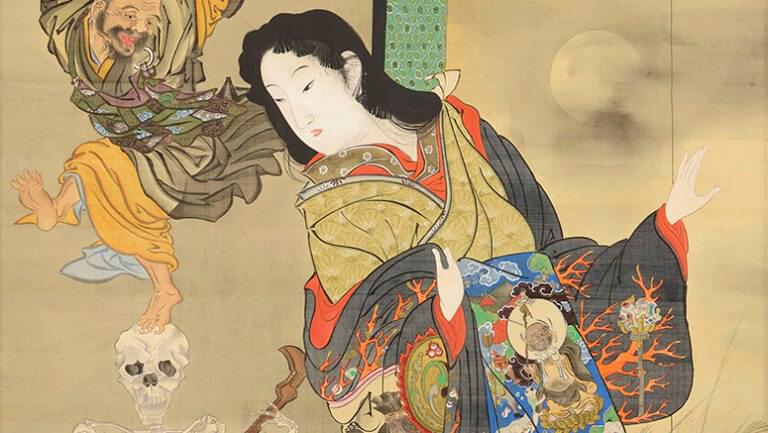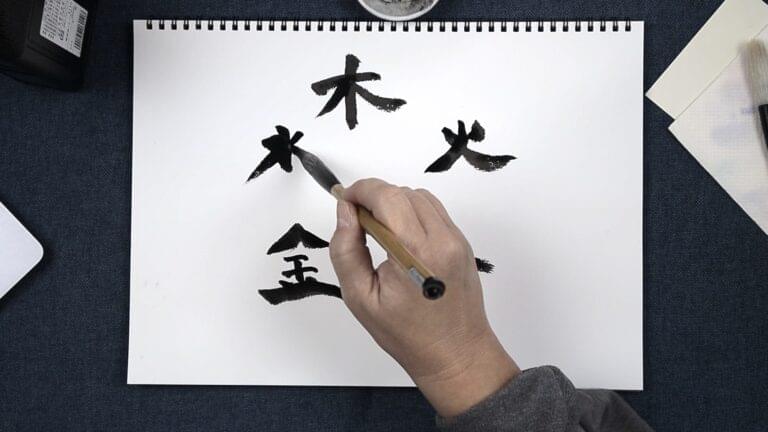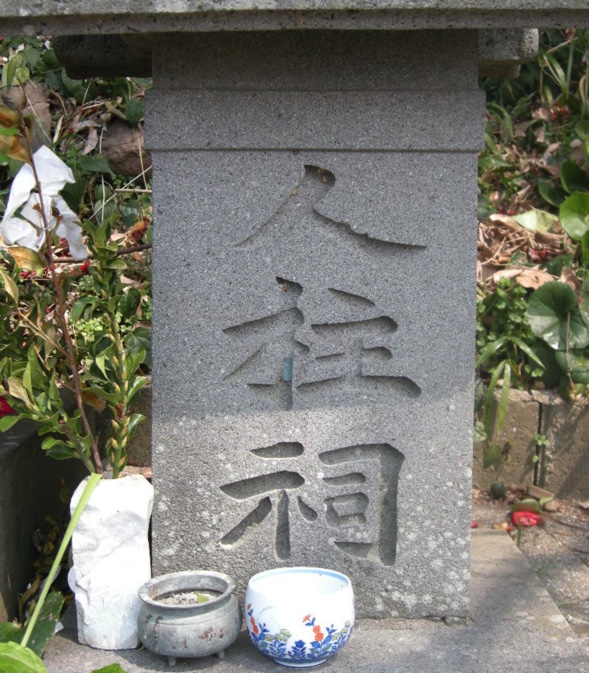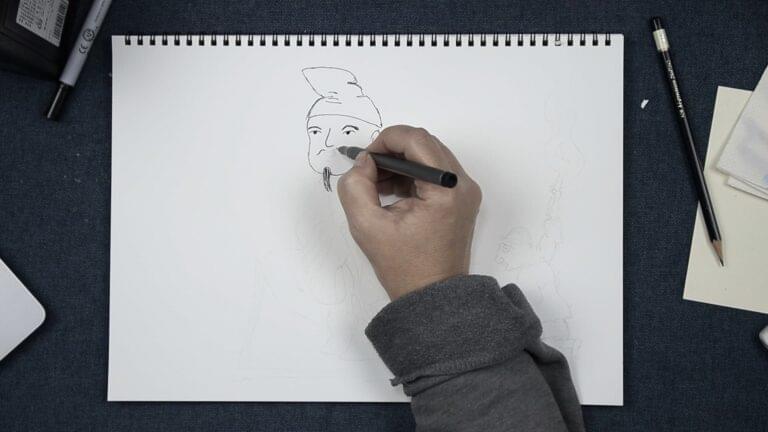I’m author Thersa Matsuura, and I’m here to share with you all those hidden, fascinating, and sometimes frightening corners of old Japan. Join me as I explore strange superstitions, curious creatures, and cultural enigmas, right here on Uncanny Japan.
It didn’t hit me how apt today’s topic is to what’s going on in the U.S. until I was a little into writing it. I just have always liked this very creepy old horror story and wanted to introduce it here. It’s quite short, so I’ll also tell you about another old and creepy story with not nearly as disturbing an ending.
The first is called Todaiki, or Candlestick Demon, and the second is Minister Kibi’s Adventures in China. Both involve traveling to a foreign country, in this case China, back when traveling was a huge deal, took a lot of time, and was dangerous for various reasons. Both also involve characters who really existed in historical times. How much of these tales is true, and how much is wildly imagined?
The Disturbing Story of Tōdaiki, the Candlestick Demon
The disturbing story of Todaiki, the Candlestick Demon, is about a man named Hitsu no Saisho, which is the nickname for a certain Fujiwara no Arikuni, a real person who really did live in the Heian era. His father, who also appears in the story, was also a real person, who as far as I can tell really was poisoned while overseas. But no one knows exactly what happened or why.
You can let your morbid imagination decide whether the rest of the story is true or not.
Also, keep in mind that both these stories are about traveling to China. From the period between the 7th and 9th centuries, Japan sent many envoys to China. Japan was going through its own political and social reforms at the time, and had a lot to learn from China, which was in the Tang Dynasty, the golden age of Chinese civilization.
These missions were called kentōshi (遣唐使), and were important for learning about different ways of governing, deepening understanding of Buddhism, philosophy, art, architecture, and science, to name a handful. But they were arduous journeys. Ships weren’t very big back then. There was no sophisticated navigational equipment or reliable charts, and weather was unpredictable.
Depending on the route, a trip from Japan to China could take weeks or even months. And there was a good chance that you wouldn’t make it to your destination at all, and just end up sunk to the bottom of the ocean with the rest of the ship. To return as a funayure, or boat ghost.
That’s another episode if I haven’t already done it.
Once they reached the shore, then these emissaries had to travel across a lot of land. Just as difficult for different reasons. Rough terrain, harsh weather conditions, robbers, disease, exhaustion, supply shortages. And let’s not forget communication difficulties.
Members of a kentōshi mission were typically gone for several years or longer, with the only means of communication being another envoy bringing news or taking news back home. There was no postal service, and nothing was reliable.
With all that in mind, let’s hear about the tale of Todaiki, the candlestick demon.
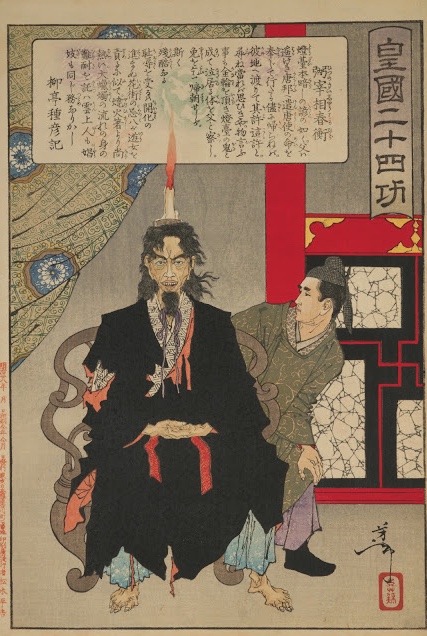
The Missing Father
The story goes that once upon a time, a diplomatic minister, Karu no Daijin, traveled to China on a kentōshi mission, leaving his family behind for some uncertain time. Months passed, years passed, more years passed. Still, he didn’t return. His very distraught family was left not knowing what had happened, not even knowing if he was alive or dead.
Even more years passed, and his young son grew into a young man called Hitsu no Saisho. Hitsu no Saisho decided to go himself to China and try to find his missing father. He made it to the mainland and began traveling around, asking whomever he could if they had seen or heard about his father, Minister Karu. No one had.
The Horrific Discovery
Eventually, he ended up in a room one night, resting from that day’s inquiries, when he noticed a very strange piece of furniture. A tall candle holder that resembled a human. The lifelike effigy stood on a small platform. A thick, burning candle had been placed on its head, with layers of wax dripping down into its hair and over its shoulders.
On closer examination, Hitsu was surprised to see that the figure was crying. It took a moment for him to realize this abomination was his own father.
What he would learn later is that his father had been poisoned. Then, using some kind of mysterious dark magic, he was drugged so that he could no longer talk or move. His body was covered in tattoos, a large candle was placed on his head, and he was dubbed the Candlestick Demon. Toldaiki.
Because the Toldaiki was under some black spell and couldn’t speak, he mustered all his strength to lift one hand to his mouth, bite his finger, and write a poem on the wall in blood. The poem went something like this:
I am from Japan. You and I share the same family name. From a previous life, a vow made us father and son. Across the sea and mountains, my life has changed terribly. For years I have cried in this weed-choked place. Every day I think about my parents. I have been turned into the Candlestick Demon. But all I want to do is return home.
The entry in Toriyama Sekien’s book, Hyakki Yagyō Shū’i, More from the Demon Horde, ends here. But there is a continuation written much later that tells of Hitsu bringing his father home. It has a bittersweet ending, however. His father does get to return to Japan, his home. But he dies before he is reunited with his family, so he doesn’t get all the way home.
The End
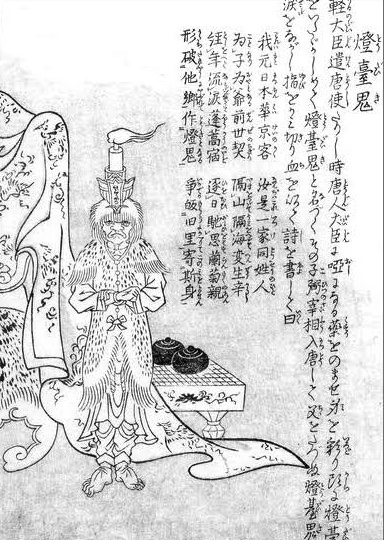
Minister Kibi’s Adventures in China
The second story is similar in that it involves a real historical person who traveled to China, but it’s less harrowing and more silly and bizarre. This one was actually told in pictures and words on a long scroll dated from the 12th century. It’s titled Kibi Daijin Nittō Eikotoba, or Minister Kibi’s Adventures in China.
Sadly, the scroll was taken from Japan in 1932 and now resides in the Museum of Fine Arts in Boston. It’s one of the museum’s most important Japanese scroll paintings. While it has visited Japan on at least one occasion, it has yet to be returned.
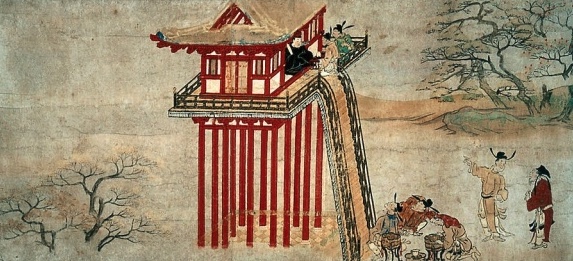
The scroll is a pictorial account of the fictitious adventures of the Japanese ambassador, Kibi no Makibi, in China in the years 752 and 753. Again, one of those kentōshi missions. Kibi, too, was a real historical figure. He visited, stayed, and studied in China for more than 17 years and completely immersed himself in the culture.
He studied law and government, astronomy, military strategy, literature and Confucian classics, as well as other arts and sciences. After he returned to Japan, he helped implement legal reforms, calendar reforms (the Chinese had more accurate astronomical calculations), military organization, established learning institutions, and went on to serve as a high-ranking official in the imperial court as an advisor.
The Magical Tests Begin
In Kibi’s adventures, he’s portrayed as a bit of a magician who has to pass some tests in order to return home to Japan. When there is mention of a demon, you can imagine an oni. That’s what it looks like on the scroll.
The beginning panels are missing, but the story has been pieced together from other works, and it goes something like this.
Minister Kibi arrived in China, and his hosts are quite embarrassed by how learned he was. That he was so very knowledgeable about so many things, and he acted as a true Chinese gentleman. Because of this embarrassment, they had a secret meeting and decided to send Kibi up into a tower that was haunted by a demon. They’d lock him in and hope that he wouldn’t survive the night.
Meeting the Demon
Kibi did as instructed and climbed into the tower. Night fell, and it began to rain. Wind whistled, and the minister, frightened, felt all the hairs stand on end. Suddenly, there appeared a demon in the northwest direction. Kibi, having some magical powers himself evidently, made a magic sign so that the demon couldn’t see him.
Then he spoke. “What kind of thing are you? I am an envoy of the ruler of Japan. Royal affairs are not to be easily interfered with. Why are you peeking in here?”
The demon replied. “This is most fortunate. I too came over here as a Japanese envoy to the Tang court. I should like to talk to you.”
“If you want to talk to me, you must change your demon form before entering,” Kibi insisted.
The demon disappeared for a little while, then returned wearing the proper robes and hat. Kibi turned off his invisibility charm and invited him inside.
“I was a Japanese envoy to China, too. Do my descendants, the Abe family, still exist? Please tell me about them. I came over as an ambassador and was shut up in this tower, given no food, and starved to death. Be coming as you see me now. I live in this tower, and I don’t have any desire to harm anyone, but those who see me inevitably meet their death. So even though I’ve been wanting to talk about affairs of my land, I could get no reply from them. I’m so happy to meet you today.”
Kibi then went on to tell the demon about what was going on with the Abe family and in Japan. The two talked long into the night, until day broke. The demon thanked Kibi and said he’d return the favor and tell him anything he wanted to know about China, and then he slipped away.
The Test of the Wenshuan
A little while later, food was brought to the tower, and the food bringers were surprised to find that Kibi was still alive, not frightened to death or killed by the demon. They left, and the demon returned, telling Kibi he’d heard people in the court thinking up the next challenge, to test his knowledge of the great Chinese anthology called the Wenshuan.
Here we learn that Kibi has the ability to fly. So both he and the demon got into a kneeling position, and together they flew from the tower and crept into the palace, where they overheard officials reading from the Wenshuan. What luck!
Kibi asked the demon to provide him with some paper and brush and ink, which he did, the paper being the backs of old calendars. Kibi started to write down the passages he heard. After filling all the pages, he scooped them up, flew back to the tower, and scattered them about the room.
When the imperial messenger arrived later to the tower, he noticed all the papers and asked what they were. Kibi offhandedly said, “Oh, they’re passages of the Wenshuan, a treasured book that all Japanese keep at their bedside.”
Surprised, the messenger went back to tell of the prisoner’s knowledge of the great book. Foiled again.
The Chess Challenge
On to task number three, chess, or the game of go. This was another skill that only the most learned gentleman knew. Tomorrow, Kibi would face the Chinese champion of the game.
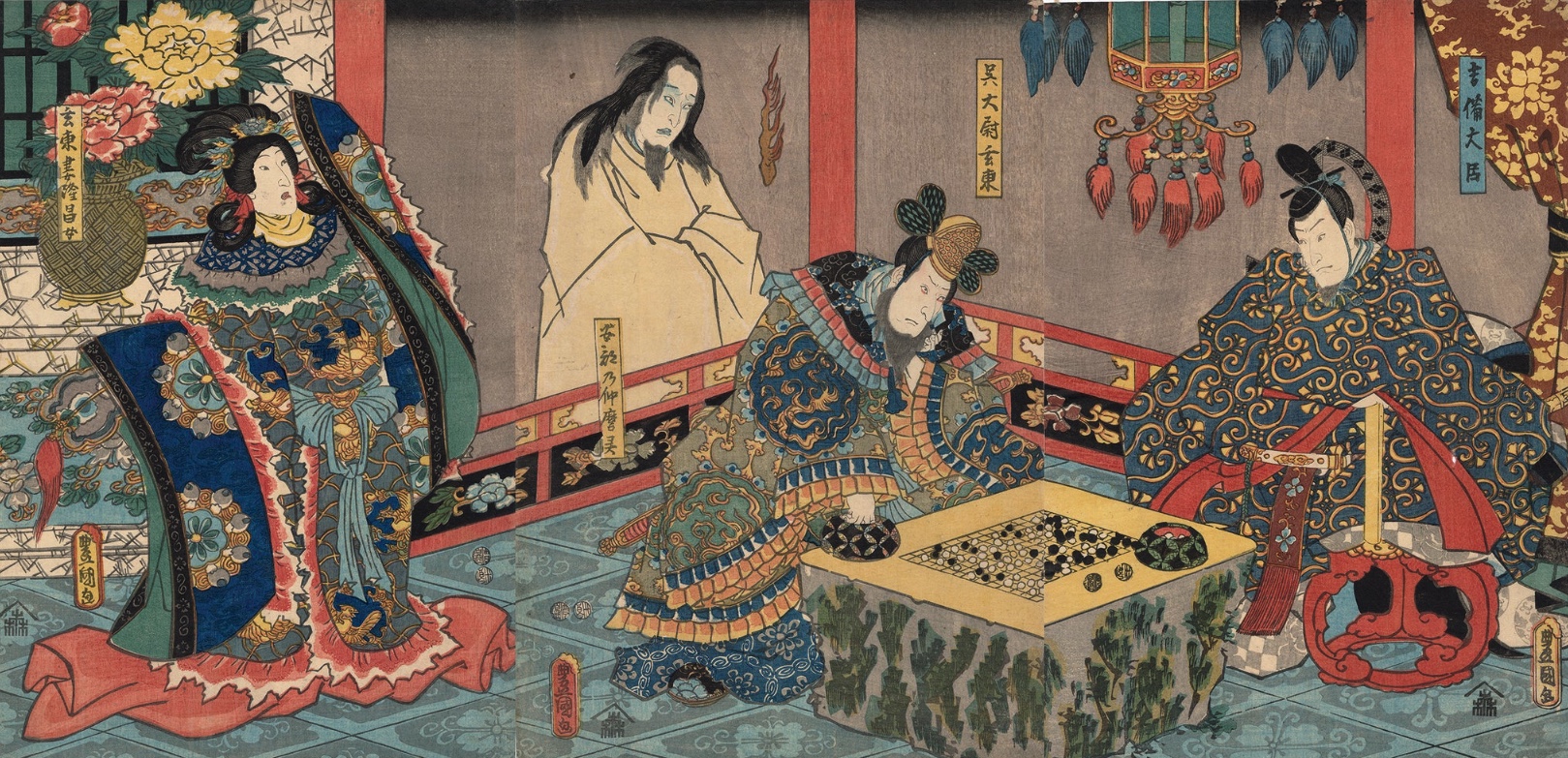
The demon showed up again and spent all night giving Kibi a crash course on the rules of the game. The next day, the game was going pretty well, but one night of studying chess wasn’t enough to give Kibi the advantage he needed to defeat the country’s champion player.
He started to lose, but somehow he found the opportunity to swallow one of the chess pieces of his opponent, which allowed him to win. Of course, the Chinese were rightly suspicious. They accused Kibi of swallowing a piece, but he denied it, and the royal laxatives were brought out.
After some waiting, they did their job, the contents were examined, and Kibi performed some more magic. He was able to make invisible the swallowed piece, so that now there was no proof of his cheating. Another win.
Starvation and the Immobilized Demon
Next, let’s lock him up in the tower the way we usually do with these ingrates and starve him to death. But this plan failed as well, because the demon, who Kibi was quite friendly with by this point, showed up every night with food.
Aha! The Chinese officials discovered that the demon was in cahoots with Kibi. They called for a priest, who used an immobilizing spell on the demon, freezing him, so he could no longer help his new friend.
A new test was thought up. This time, Kibi was to solve a poem puzzle called the Wild Horse Terrace. Basically, all the characters of the poem were mixed up, and he had to read them in the proper order. There was no demon to give him help.
So the always resourceful Kibi prayed to the Japanese god of literature, and poof! A spider lowered itself from the ceiling and started scampering about the paper, indicating the correct order in which to read the words. Another victory for Kibi.
The Final Eclipse
Fine, the demon is immobilized, so let’s lock him back up in the tower and try that starving thing again. This time, though, Kibi pulled out the big guns. He used his magic to cause an eclipse of the sun and the moon. The Chinese imperial court were so impressed and terrified with this feat that they finally allowed him to return home unscathed.
The End
Thank you so much for listening. Stay safe and well, and I’ll talk to you again in two weeks.

